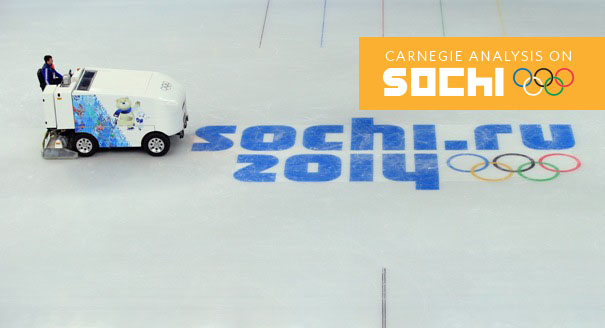The Sochi Olympics, which start in ten days, are more politicized than any other Games in recent history. Parallels to the 1980 Moscow Olympics are not far-fetched. Then, the Games were boycotted by the United States and many of its allies, to punish the Soviet Union for the invasion of Afghanistan. Now, while there is no question of withdrawing national teams from the competition, a number of world leaders, led by U.S. President Barack Obama, have announced that they would not attend the Games as VIP spectators, a new fad among the global high and mighty.
The reason most often mentioned for this no-show is the newly adopted Russian legislation which bans gay propaganda to minors. This legislation, resulting from the Kremlin-led domestic swing toward conservatism, has aroused the LGBT community around the world. Russia stands accused by them as condoning discrimination and thus infringing on the Olympic spirit. Official Russian assurances that athletes have nothing to fear in Russia have failed to placate the LGBT activists, though few athletes have called off their participation on these grounds. What the LGBT campaign has actually done was to give more attention to Russia than it was accorded in the past decade.
This attention ranges from the record cost of the Games ($50 billion) and the inevitable issue of corruption to the situation in the North Caucasus where Sochi is located to the problem of security and, in particular, terrorism. What emerges under this critical scrutiny is a country which has been able to build impressive infrastructure in time for the Games, which was not a given when Sochi was awarded the Winter Olympics, but where roads, bridges, and airports cost much more than elsewhere in the world. What emerges is also a country which can ensure massive security presence in Sochi, but cannot protect its citizens everywhere from terrorist attacks.
This coverage, negative on balance, will be seen in Moscow as predictable. In reality, Russian leaders care even less about their image abroad than they claim. Rather, the Kremlin uses foreign criticism as proof of the West's perennial desire to hold Russia back, and keep it weak. The diplomatic quasi-boycott by the United States and its European allies will give even more prominence to the visit by China's leader Xi Jinping, his third to Russia in 12 months. Japan's Prime Minister Shinzo Abe is also expected to come, ahead of Vladimir Putin's visit to his country later this year. Not all Western visitors will stay away either. The Netherlands will be represented by the King Willem-Alexander, the Queen Máxima and the Prime Minister Mark Rutte. As for Barack Obama, Angela Merkel, David Cameron and François Hollande, they will not be able to escape Putin's hospitality in Sochi: four months after the Olympics kick-off, the Russian president will be hosting the G8 summit there.





